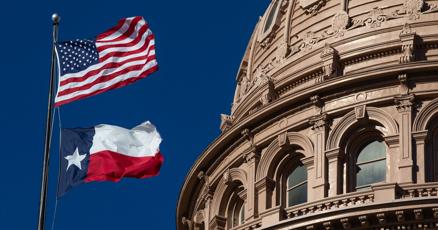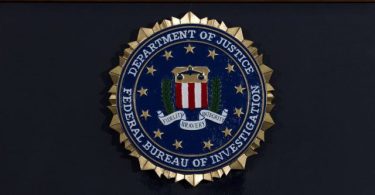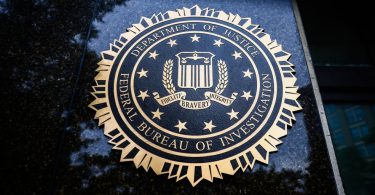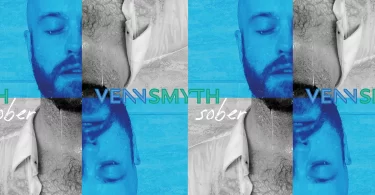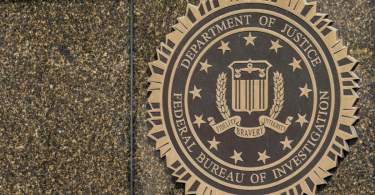Lawmakers in the Texas House and Senate filed more than a thousand pieces of legislation Tuesday, offering an early look at the issues they hope to prioritize when they gavel in for the 89th legislative session in January.
Here’s a look at more of the notable bills filed Tuesday.
Elections
Earlier this year, Gov. Greg Abbott said the state had removed more than 6,500 potential noncitizens from its voter rolls. An investigation by ProPublica, The Texas Tribune and Votebeat found that number was likely inflated and, in some cases, wrong.
Nonetheless, Republican lawmakers Rep. Briscoe Cain of Deer Park and Sen. Bryan Hughes of Mineola, filed bills that would require Texans applying to register to vote to provide proof of citizenship. Arizona is the only state in the country with such a requirement in place. Hughes proposed similar legislation last year but it did not move forward.
Rep. Valoree Swanson, R-Spring, proposed a bill that would designate certain licensed peace officers to serve as election marshals. Election marshals would have the powers and duties of state inspectors, including investigating alleged election code violations. A similar piece of legislation passed the Senate last year but was not approved by the House.
Rep. Steve Toth, R-The Woodlands, also filed a slate of bills clamping down on election security. House Bill 1001 would require poll workers to provide paper ballots to voters who request one, a measure aimed at addressing concerns that voting machines are rigged (those claims have been broadly debunked). House Bill 999 mandates that the custodian of election records shares ballots people used to cast their votes or their images with anyone who requests them for inspection within 60 days of an election.
Austin Democratic Rep. John Bucy, meanwhile, filed several pieces of legislation that would expand voter access and education. House Bill 374 would designate certain election days as state holidays, and House Bill 665 specifies information the secretary of state’s website must contain about upcoming elections.
A group of Democratic Texas senators also filed legislation directing county commissioners’ courts to designate at least one polling place on college campuses with at least 5,000 students, and at least two polling stations on college campuses with 10,000 students. One more polling place must be added to each campus for every additional 10,000 students enrolled at that college or university. The legislation comes after multiple counties across the state removed early voting locations from college campuses during the most recent election despite pushback from students.
LGBTQ+ Rights
Last session, Texas Republicans passed some of the most aggressive anti-LGBTQ+ legislation in the country, outlawing gender-affirming care for minors and severely limiting drag performances.
Bills filed Tuesday show that Republicans plan to go even further this session. HB 847 would ban the use of any taxpayer resources for “gender reassignment” — including the funding of health benefits that cover gender reassignment for adults. The bill, filed by Rep. Brian Harrison, provides exceptions for those defined as “intersex.”
Another bill would make it a felony for public schools or universities to conduct or permit any study of children’s sexual behavior. The author of that bill, Edgewood Republican Sen. Bob Hall, also filed legislation that’d require school districts to inform parents if their child’s perception of their biological sex is “inconsistent” with their “sex organs, chromosomes and endogenous hormone profiles.” The bill would also allow parents to sue districts that fail to inform them about curriculum involving sexual orientation or gender.
Hall also filed a bill that would prohibit government health insurance programs from covering gender-affirming care, and increase civil liabilities for doctors who offer transition-related medical procedures.
Another bill, filed by Rep. Steve Toth, a Republican from The Woodlands, would allow drag performers to be sued by children who attended their performances — even if the child was brought to the performance by their parents.
HB 778, filed by Rep. Jeff Leach, a Republican from McKinney, would require health insurance plans that pay for gender-affirming care to also cover the costs of any adverse consequences related to the treatment, as well as any treatments to reverse the patient’s transition.
Some Republicans seem to also want to resurrect the idea of a “bathroom bill,” legislation that would prohibit people from using a bathroom that doesn’t align with the sex they were assigned at birth. A previous attempt in 2017 died after months of controversy, but Toth and Sen. Mayes Middleton, a Republican from Galveston, have both filed bills that aim to reignite the issue.
Marriage
Rep. Cody Vasut, R-Angleton, filed two bills that would affect marriages. One of them, House Bill 732, would repeal a section of the Texas family code that allows for marriages to be annulled because of impotency.
Another Vasut bill would make Texas one of four states that allow “covenant marriage,” a legal arrangement that has been favored by some conservative Christians, including U.S. House Speaker Mike Johnson. Under House Bill 931, both parties would have to agree to a divorce in order for a court to grant it. Before that, they’d also have to undergo at least five hours of counseling by a member of the clergy or a licensed mental health professional.
Advocates for covenant marriage say it helps foster “traditional family values” and protect marriage by requiring counseling or other steps before divorce. Critics, however, say that it amounts to a government endorsement of a specific form of religious marriage, and that it can make it more difficult for spouses or families to flee abusive situations.
Criminal Justice
Rep. Joe Moody, D-El Paso, filed a bill that would require the Criminal Court of Appeals to issue a written response in cases where it denies a writ of habeus corpus. The bill also revises the junk science law, a 2013 law that allows defendants to obtain new trials in cases that rely on flawed scientific evidence. No one on death row has successfully used the law to obtain a new trial.
Moody’s bill would change the standard of proof required to merit a new trial. Currently, a defendant must prove that the likelihood of them being found innocent would have been higher had accurate scientific evidence been presented at trial. The proposed bill only requires a “reasonable likelihood” that the scientific evidence could have affected the person’s conviction or punishment.
Moody’s proposal comes after he and other state lawmakers on the Texas House Committee on Criminal Jurisprudence launched an extraordinary effort to halt the execution of death row inmate Robert Roberson, who was convicted of murdering his 2-year-old daughter. Lawmakers have argued that new medical evidence that emerged after Roberson’s 2003 conviction point to Roberson’s innocence.
Rep. John Bucy, an Austin Democrat, also filed a bill seeking to abolish the death penalty. Texas is one of just a handful of states that impose death sentences. Democratic lawmakers have previously put forth bills seeking to abolish the death penalty, but they have never garnered bipartisan support.
Energy
Lawmakers from both parties filed bills that seek to ensure a faster response to power outages after storms and to strengthen utility infrastructure.
The bills came after Hurricane Beryl, a Category 1 hurricane, swept through southeast Texas this summer. The damaging winds wreaked havoc on trees and power lines, leaving millions of Texans without electricity for days.
Following the hurricane, a major controversy arose because Houston area’s electric utility, CenterPoint Energy, didn’t use mobile generators. The utility had leased 20 massive power generators for more than $800 million to help in extended power outages, something it was able to do under a law passed after the deadly 2021 winter storm. The Public Utility Commission of Texas, which regulates the state’s power grid, allowed CenterPoint to increase customers’ electricity bills to pay for the generators, but it deployed only a few of them after Beryl struck because they were massive and difficult to transport. Lawmakers questioned the large expenditure in the storm’s aftermath, saying the devices weren’t used when they were needed most.
A bill by Sen. Phil King, R-Weatherford, seeks to address that grievance. It would require electric utilities to have mobile, emergency power generators that can be quickly deployed after a storm to areas impacted by power outages. The bill also would require the PUC to review generators that were previously leased to CenterPoint and other utilities to ensure that the equipment is really mobile.
Sen. Molly Cook, D-Houston, proposed a bill calling for a study of the costs and benefits of burying distribution power lines.
Some electricity experts have proposed burying power lines because it protects them from fire and tree limbs that might fall during storms. Others say putting power lines underground is costly and might not be appropriate for flood-prone places like Houston.
Health
Vaccinations and how they are administered were once again the subject of several bills — even though no state requires students to be vaccinated against COVID-19 as a condition of school admission or that private employers in Texas can’t require them as a condition of employment.
Sen. Bob Hall, R-Edgewood, and Rep. Briscoe Cain, R-Deer Park, filed bills requiring medical providers to secure informed consent before vaccinating a child. Rep. Brian Harrison, R-Midlothian, filed a measure that would keep employers from requiring a COVID-19 vaccine for any reason.
Several bills targeted the inner workings of the state’s foster care system, with Rep. Armando Walle, D-Houston, filing legislation that sets a maximum caseload requirement for caseworkers. Hall and Sen. Mayes Middleton, R-Galveston, filed a measure that would set time limits on how long the state can keep the names of people in the child abuse registry. Rep. Steve Toth, R-The Woodlands, wants a state grant program for religious foster care providers.
A handful of bills would direct the state to study certain health policy problems or plan for better care of its residents. Rep. Ray Lopez, D-San Antonio, wants a task force to evaluate the housing needs of an aging LGBTQ+ population. Toth filed a bill urging a study on whether individuals who committed suicide were using psychotropic drugs. Rep. Sulemon Lalani, D-Sugar Land, a physician who specializes in elder care, wants independent senior living facilities to file health and safety plans that first responders can access in case of an emergency, like assisted living and nursing homes are required to do.
Several bills were filed to expand Medicaid health insurance coverage in Texas, an issue that is considered unlikely to gain traction despite how much federal funding it would unlock. GOP leadership has been steadfastly opposed to any expansion of Medicaid, which currently covers mostly children, disabled individuals and older adults. The state’s uninsured population, which now sits at about 16%, is considered the largest in the nation.
Guns
Texas lawmakers filed competing gun laws, with Republicans seeking to expand gun owners’ rights and Democrats trying to limit them.
State Sen. Bob Hall, R-Edgewood, filed a bill that would allow licensed handgun holders to carry a concealed handgun while on school district campuses, including at open-enrollment charter schools. Texas law generally bars people from carrying firearms on K-12 campuses.
State Rep. Cecil Bell, R-Magnolia, also filed a bill that would limit the civil liability of businesses that allow concealed handguns on their premises. Under House Bill 644, a person with control of a business would not be liable for any damages related to someone else lawfully carrying a concealed handgun.
San Antonio Democratic Rep. Diego Bernal, meanwhile, filed House Bill 834, which limits where a person may carry a firearm. The bill would make it a crime for people to carry a firearm, other than a handgun, in counties with a population of more than 1 million, unless the person is on their own premises, en route to their own vehicle or had express authorization to carry the firearm in someone else’s premises.
Democratic lawmakers also filed several bills regulating the sale of firearms at gun shows. Those laws would make a person criminally liable if they sell a firearm without complying with the National Instant Criminal Background Check. It is unlikely for proposed restrictions on gun owners to pass in the Republican-controlled Legislature, which has historically blocked any attempt to curtail gun rights.
Workers’ Wages
Several Democratic lawmakers filed bills related to workers’ wages.
Rep. Armando Walle, D-Houston, filed a bill that calls for increasing the minimum wage to $15 per hour. Rep. Terry Meza, D-Irving, proposed a more targeted bill to increase the minimum wage to $15 per hour for Texas’ school bus drivers.
Texas uses the national minimum wage rate, which is $7.25 an hour and has been since 2009 — the longest time workers have gone without an increase since the Fair Labor Standards Act was passed in 1938. Other states have approved minimum salaries above the federal threshold, like the Republican-dominated Florida in 2020.
Rep. Mary E. González, D-Clint, proposed creating a public online database of employers that have been penalized for wage theft. A similar bill was filed during the last session by Sen. Judith Zaffirini, D-Laredo, but failed to receive a hearing.
Rep. Vikki Goodwin, D-Austin, filed a bill that would increase longevity pay for state employees from $20 to $50 a month. Rep. Ron Reynolds, D-Missouri City, filed a bill proposing paid sick leave. It would allow employers to carry over unused paid time off for their employees to the next calendar year or pay them out if they choose not to roll it over. Rep. Senfronia Thompson, D-Houston, proposed a bill allowing workers to sue for back pay and damages for discrimination in compensation.
State Democrats have tried to raise Texas’ minimum wage above the federal minimum for years. Their attempts have gained virtually no traction at the Legislature.

